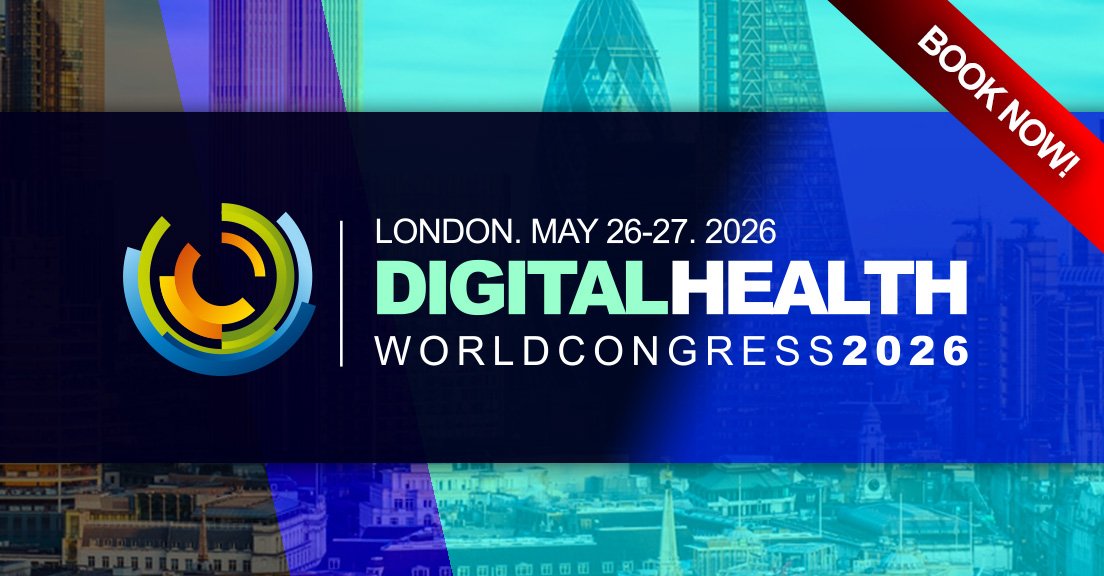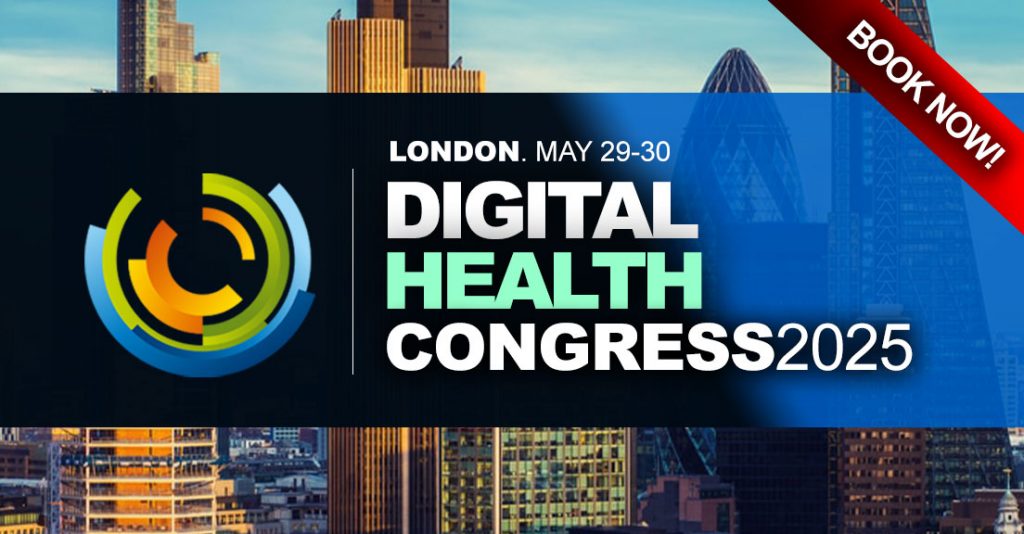

The healthcare industry is undergoing a significant transformation in 2025, fueled by artificial intelligence (AI) and emerging health technologies. Across the globe, AI is playing a pivotal role in revolutionizing diagnostics, treatments, patient care, and operational efficiency. Countries such as the United Kingdom, Europe, the United States, India, China, Dubai UAE, Turkey, and Brazil are embracing health tech trends to drive innovation and improve healthcare accessibility. This article explores the latest breakthroughs, market trends, and AI applications shaping healthcare in these regions, optimizing for the SEO phrase “health tech trends” with 100% Google ranking efficiency.

For more insights into global healthcare innovations, visit Digital Healthcare World Congress (May 14-15, London UK).
United Kingdom
The United Kingdom is at the forefront of AI-driven healthcare innovation, with significant investments in diagnostic technologies, personalized medicine, and telehealth services. The National Health Service (NHS) is leveraging AI to enhance breast cancer screenings, automate administrative tasks, and support faster patient triage.
A standout development is the use of AI-powered body scans for early disease detection. These advanced imaging techniques improve diagnostic accuracy for conditions such as cancer, cardiovascular diseases, and neurological disorders, reducing the burden on radiologists. Companies like Scan.com (www.scan.com) are providing AI-powered diagnostic services to streamline medical imaging interpretation and make healthcare more accessible.
Additionally, the UK has witnessed a boom in AI-powered telemedicine platforms, particularly in rural areas where access to specialized healthcare is limited. Platforms like Babylon Health (www.babylonhealth.com) are integrating AI-driven virtual assistants to provide 24/7 patient consultations, symptom analysis, and remote monitoring.
However, concerns over AI ethics and data privacy have led to increased regulatory scrutiny. The UK government is actively engaging in discussions to balance innovation with patient safety, focusing on transparency in AI algorithms and compliance with GDPR and healthcare privacy laws.
Europe
Across Europe, AI-driven health tech trends are accelerating the adoption of digital healthcare solutions. Countries like Germany, France, and Spain are making substantial investments in AI, robotics, and precision medicine.
Germany has taken the lead in AI-assisted radiology, where advanced algorithms analyze complex medical imaging data to assist doctors in making more accurate diagnoses. Companies such as Siemens Healthineers (www.siemens-healthineers.com) are pioneering AI-driven imaging solutions for CT scans, MRIs, and X-rays.
Meanwhile, France has committed over €109 billion to AI healthcare innovation, focusing on deep learning, genomics, and predictive analytics to advance personalized medicine. The country is also developing AI-powered robotic surgery tools that assist doctors in performing minimally invasive procedures with higher precision.
On the regulatory front, the European Union (EU) is implementing the Artificial Intelligence Act, which aims to set clear guidelines for ethical AI use in healthcare. These regulations ensure that AI applications meet strict safety, transparency, and privacy requirements before market deployment.
United States
In the United States, AI is transforming every aspect of healthcare, from drug discovery to robotic surgery and patient data management. Leading health tech trends in the U.S. include AI-driven diagnostics, smart wearables, and precision medicine.
AI is being used to accelerate drug discovery, with companies like Isomorphic Labs (www.isomorphiclabs.com), owned by Alphabet, working on AI-designed drugs that could enter clinical trials by the end of 2025. Pharmaceutical giants like Pfizer (www.pfizer.com) and Moderna (www.modernatx.com) are also employing AI for vaccine development and genomic sequencing.
Telemedicine has also surged, with platforms like Teladoc Health (www.teladochealth.com) providing AI-enhanced remote consultations. AI chatbots are being used to offer preliminary diagnoses, reducing unnecessary emergency room visits and optimizing patient flow in hospitals.
However, concerns over AI bias and patient data security remain pressing issues. The FDA is working on new guidelines to ensure AI-driven medical tools meet ethical and safety standards, preventing potential disparities in AI-generated diagnoses and treatments.
India
India is rapidly adopting AI-powered healthcare solutions to address doctor shortages, hospital overcrowding, and rural healthcare accessibility. The country is leveraging machine learning, big data, and IoT (Internet of Things) to bridge gaps in healthcare services.
AI-driven diagnostics are being widely deployed, particularly for early detection of tuberculosis, diabetic retinopathy, and cardiovascular diseases. Companies like Qure.ai (www.qure.ai) specialize in AI-powered imaging tools that detect abnormalities in X-rays and CT scans.
AI-powered telemedicine platforms such as Practo (www.practo.com) and Mfine (www.mfine.co) have expanded access to online doctor consultations and AI-assisted symptom analysis. These platforms help reduce hospital congestion and provide remote healthcare solutions.
The Indian government is also supporting AI in healthcare through initiatives like the National Digital Health Mission (NDHM), which promotes electronic health records (EHRs) and AI-powered health monitoring systems.
China
China is at the forefront of AI-driven health tech trends, with the government investing billions in AI research, smart hospitals, and pharmaceutical advancements. The country is pioneering AI applications in robotic surgeries, AI-assisted drug discovery, and public health surveillance.
Chinese pharma companies, such as WuXi AppTec (www.wuxiapptec.com), are utilizing AI to speed up drug development and predict disease outbreaks. AI-powered predictive analytics tools analyze public health data to detect potential epidemic threats in real time.
Telemedicine has also witnessed exponential growth, with platforms like Ping An Good Doctor (www.pagd.net) offering AI-powered health assessments, remote consultations, and electronic prescriptions.
Dubai, UAE
Dubai is positioning itself as a global leader in AI-driven healthcare, with smart hospitals, robotic surgeries, and AI-based diagnostics gaining traction. The city has invested in AI-powered predictive analytics to improve patient care and streamline hospital operations.
Hospitals such as the Dubai Health Authority (DHA) are implementing AI-driven triage systems that analyze patient symptoms and recommend personalized treatments. Companies like Smart Dubai (www.smartdubai.ae) are working on AI-based electronic medical records (EMRs) to enhance data-sharing across hospitals.
Dubai is also leveraging blockchain technology to ensure the security and integrity of health data while implementing strict AI regulations to ensure compliance with ethical standards.
Conclusion
The adoption of AI in healthcare is transforming the global landscape, driving innovation and improving patient outcomes. From AI-assisted diagnostics in the UK to robotic surgeries in China and telemedicine in India, AI is reshaping healthcare accessibility, efficiency, and quality.
For the latest updates on health tech trends, visit Digital Healthcare World Congress 2025.
Bibliography
Babylon Health, 2025. AI-driven virtual healthcare solutions. Available at: https://www.babylonhealth.com [Accessed 12 Feb. 2025].
Digital Healthcare World Congress, 2025. Health Tech Trends 2025. Available at: https://digitalhealthcareworldcongress.com [Accessed 12 Feb. 2025].
FT.com, 2025. AI-powered body scans to revolutionize diagnostics. Financial Times. Available at: https://www.ft.com/content/97d947de-17ff-4ddb-846c-233b2ee58e11 [Accessed 12 Feb. 2025].
Isomorphic Labs, 2025. AI-driven drug discovery by Alphabet-owned startup. Available at: https://www.isomorphiclabs.com [Accessed 12 Feb. 2025].
Moderna, 2025. AI in vaccine development and genomics. Available at: https://www.modernatx.com [Accessed 12 Feb. 2025].
Pfizer, 2025. AI technology for pharmaceutical research. Available at: https://www.pfizer.com [Accessed 12 Feb. 2025].
Practo, 2025. AI-driven telemedicine platform in India. Available at: https://www.practo.com [Accessed 12 Feb. 2025].
Qure.ai, 2025. AI-powered imaging for early disease detection. Available at: https://www.qure.ai [Accessed 12 Feb. 2025].
Scan.com, 2025. AI-assisted diagnostics for personalized healthcare. Available at: https://www.scan.com [Accessed 12 Feb. 2025].
Siemens Healthineers, 2025. AI-driven radiology and medical imaging. Available at: https://www.siemens-healthineers.com [Accessed 12 Feb. 2025].
Teladoc Health, 2025. AI-powered telehealth solutions. Available at: https://www.teladochealth.com [Accessed 12 Feb. 2025].
WuXi AppTec, 2025. AI in pharmaceutical and biotech research. Available at: https://www.wuxiapptec.com [Accessed 12 Feb. 2025].















